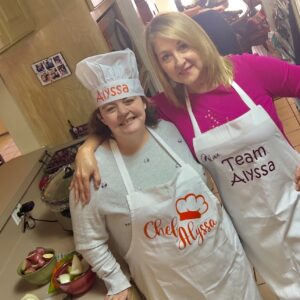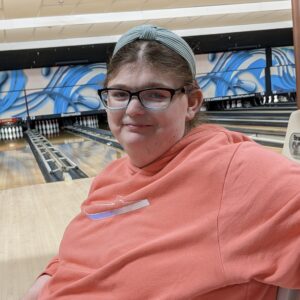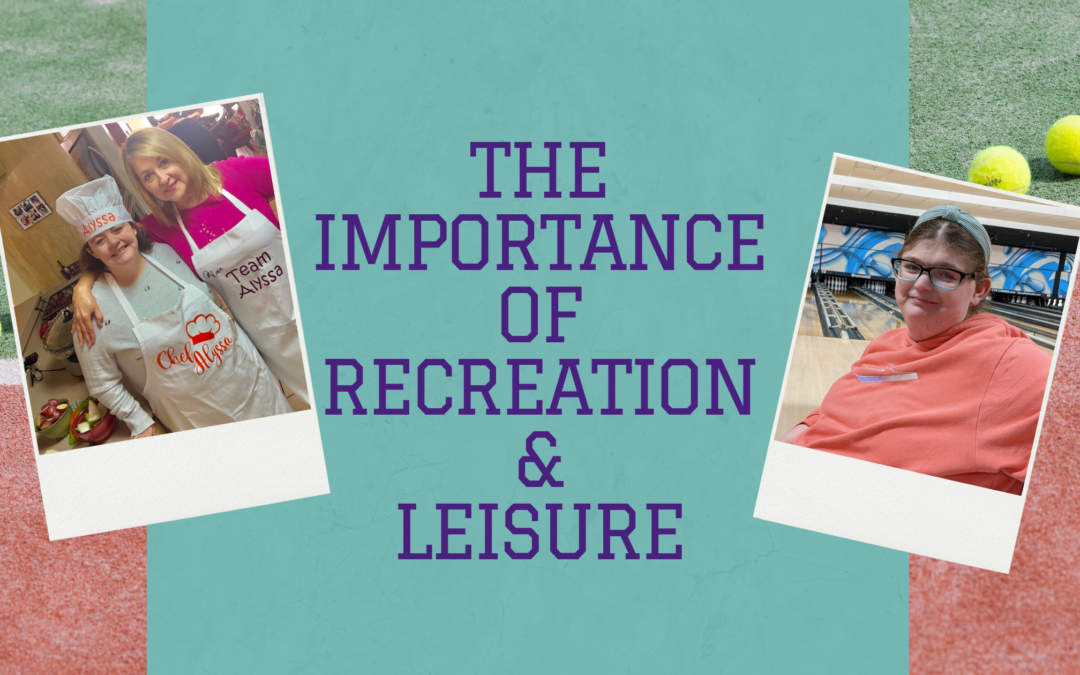By: Family Services
It can be challenging to find opportunities for teenagers to socialize with others, establish healthy relationships, and develop the self-confidence to know they are valued friends and partners. School can structure a child’s day and opportunities to engage with peers in the classroom and extracurricular activities. But school supports end when a child graduates. Without planning, this can leave young adults alone and without the support system needed for their success. Exploring resources available during and after high school that match your child’s strengths, interests, and needs can help maximize their success.
Building Social Skills and Relationships
If your child’s strengths, interests, and preferences are building one-on-one relationships, see if your child’s middle or high school offers a Best Buddies or similar program.
These programs build one-to-one friendships between students with and without disabilities, building meaningful connections with peers.
These programs exist in middle and high schools, colleges, and for adults in the community.

An e-Buddies program also provides a safe online space to develop friendships. Best Buddies offers leadership development programs for those that seek to become leaders and advocates in the disability community. These connections can be vital in reducing isolation and developing self-confidence and socialization skills. Best Buddies has active programs throughout the United States and in other countries.
Surviving Lunch Time
If your child identifies a need for additional companionship during the school day, see if there is a Sit With Us movement at their school. Sit With Us was started by a student, then in high school, who was bullied and embarrassed when sitting alone during lunch. Wherever the program is present, children download the free Sit With Us app that lets students find or create a lunch event and chat with others to coordinate lunches.
The first step to a warmer, more inclusive community can begin with lunch.
Music
Many children with developmental disabilities respond well to music. Music is a multi-sensory activity that can captivate attention and bring joy. It can enhance and encourage verbal skills, improve gross and fine motor skills, reduce anxiety, and help children remember step-by-step routines and transition from activity to activity. Learn what adaptive or inclusive music programs your school or town offers.
If music is a strength or interest for your child and there isn’t a specific program at your child’s school, talk with a music teacher and add these accommodations to an IEP.
Sports
Many schools emphasize providing appropriate physical education and sports opportunities for all students. Physical activity can reduce symptoms of anxiety and depression, improve overall health and function, reduce isolation, and help individuals find success and build friendships. If participation in sports fits your child’s strengths and interests, consider finding inclusive or adaptive sports programs through your local park and recreation department or Special Olympics program near you. Special Olympics programs exist across the United States and in many countries worldwide. They also offer excellent opportunities for family members to volunteer and support participating athletes.

Residential or Day Camps
Depending on your child’s strengths, preferences, and interests, camping and recreation options may be important to explore.
Residential or day camps can provide fun experiences that help develop confidence and independence.
Veryspecialcamps.com can help you find a summer camp based on your location and your child’s specific requirements and interests. You can also seek resources from organizations like Easter Seals, which offers multiple camping and recreation programs for children and adults.
Employment
Employment is also an excellent opportunity for socialization, self-esteem, and self-confidence. Vocational Rehabilitation programs can assist with this. A member of the IEP team or any school staff member can refer a student for vocational rehabilitation services. Students can also self-refer.
The process of accessing Vocational Rehabilitation services can be lengthy, beginning with assessing a student’s work potential and completing trial work experiences with a job coach. Trial work experiences occur in a natural work environment over a sufficient length of time to determine if the student can benefit from services and succeed in a work environment.
Getting started early can help ensure a smooth transition your child may need after graduation.
PRO TIP: All students who receive special education services in secondary school can receive vocational rehabilitation services while still in school. Vocational Rehabilitation Transition Counselors can collaborate with your school and provide services before graduation. If you invite them to participate in your school team, they must help the IEP team develop the student’s IEP.
PRO TIP: If you need more information or assistance regarding vocational rehabilitation services or want to know your rights under these programs, contact your State’s Client Assistance Program (CAP).
Further Education
Work with the team in your child’s high school to determine if your child will graduate at age 18 or if they will remain in school until age 21. The Individuals with Disabilities Education Act (IDEA) helps ensure free appropriate public education is available to all children with disabilities between the ages of 3 and 21.
Various educational options are available after high school for students with special needs.
Please work with your IEP team to identify different college options and their requirements,
In addition to colleges, there are adult education and job training programs and Comprehensive Transition and postsecondary (CTP) programs in many States across the Country. CTP programs are designed to support students with disabilities who want to continue academic, career, and independent learning instruction and prepare for gainful employment. Students enrolled in CTP programs can apply for Federal Pell Grants, Federal Supplementary Educational Opportunity Grants, and Federal Work-Study programs.
It’s never too early to find programs that best suit your child’s needs. As always, the CdLS Foundation is here for you! Do not hesitate to reach out to Family Services familyservicesteam@CdLSusa.org.

Recent Comments